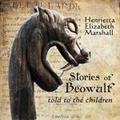ABOUT THIS BOOK
ABOUT THIS BOOK
SOBRE ESTE LIBRO
À PROPOS DE CE LIVRE
INFORMAZIONI SU QUESTO LIBRO
この本について
O TEJ KSIĄŻCE
SOBRE ESTE LIVRO
ОБ ЭТОЙ КНИГЕ
BU KİTAP HAKKINDA
关于本书
關於本書
'Beowulf is known to every one.
Beowulf|||||
'Beowulf es conocido por todos.
「ベオウルフは誰もが知っている。
"Beowulf jest znany każdemu.
Beowulf é conhecido por toda a gente.
Беовульф известен каждому.
Some months ago I read these words, and doubted if they were true.
||||||||zweifelte daran||||
Hace unos meses leí estas palabras y dudé de que fueran ciertas.
数ヶ月前、私はこれらの言葉を読んで、それが本当かどうか疑問に思いました。
Kilka miesięcy temu przeczytałem te słowa i zwątpiłem w ich prawdziwość.
Há alguns meses li estas palavras e duvidei que fossem verdadeiras.
Несколько месяцев назад я прочитал эти слова и засомневался, что они правдивы.
Then the thought came to me that I would help to make them true, for Beowulf is a fine story finely told, and it is a pity that there should be any who do not know it.
||мысль||||||||||ее||||||||хорошо||||||жаль|||должно|быть||||||
||||||||||||||||||||kunstvoll||||||||||||||||
ベオウルフは細かく語られた素晴らしい物語であり、それを知らない人がいるとは残念です。
Wtedy przyszła mi do głowy myśl, że pomogę uczynić je prawdziwymi, ponieważ Beowulf to wspaniale opowiedziana historia i szkoda, że są tacy, którzy jej nie znają.
Então veio-me à cabeça a ideia de ajudar a torná-las verdadeiras, porque Beowulf é uma bela história bem contada, e é uma pena que haja quem não a conheça.
So here it is "told to the children.
そこで、「子供たちに言われました。
Więc tutaj jest "powiedziane dzieciom.
Por isso, aqui está "contado às crianças".
Besides being a fine story, Beowulf is of great interest because it is our earliest epic, that is, the oldest poem in the Anglo-Saxon language which tells of noble deeds in noble words.
кроме||||||||||||||самая ранняя|эпос|то|то есть|самое|||||||||рассказывает||благородные|делах|||
Abgesehen von||||||||||||||frühestes|Epos|||||||||||||||||edlen|
ベオウルフは素晴らしい物語であるだけでなく、私たちの最初の叙事詩、つまり高貴な言葉で高貴な行為を語るアングロサクソン語で最も古い詩であるため、非常に興味深いものです。
Oprócz tego, że jest to wspaniała historia, Beowulf jest bardzo interesujący, ponieważ jest to nasz najwcześniejszy epos, czyli najstarszy wiersz w języku anglosaskim, który opowiada o szlachetnych czynach w szlachetnych słowach.
Para além de ser uma bela história, Beowulf é de grande interesse porque é a nossa epopeia mais antiga, ou seja, o poema mais antigo da língua anglo-saxónica que relata feitos nobres em palavras nobres.
In the British Museum there is a little book, worn and brown with age, spoiled by fire and water.
|||музей||||||изношенная||||возрастом|порченая||||
|||||||||abgenutzt|||||beschädigt||||
|||||||||worn||brown|||damaged||||
大英博物館には小さな本があり、年月とともにすり減って茶色になり、火と水で傷んでいる。
No Museu Britânico há um pequeno livro, gasto e castanho com a idade, estragado pelo fogo e pela água.
Yet it is not so brown and old, it is not so spoiled but that it may still be read by those who know Anglo-Saxon.
||||||||||||verderbt|||||||||||||
それでも、それはそれほど茶色く古いものではなく、それほど甘やかされていませんが、アングロサクソンを知っている人にはまだ読まれるかもしれません.
No entanto, não é tão castanho e velho, não está tão estragado que ainda possa ser lido por aqueles que conhecem o anglo-saxão.
This book is a thousand years old, and in its worn brown pages it holds the story of Beowulf.
||||||||||abgenutzt||||||||
この本は千年前のもので、くたびれた茶色のページにベオウルフの物語が収められています。
Este livro tem mil anos e nas suas páginas castanhas e gastas guarda a história de Beowulf.
There is something strange and wonderful in the thought that the story which pleased our forefathers a thousand years ago should please us still to-day.
|||||||||||||||Vorfahren||||||||||
千年前に私たちの先祖を喜ばせた物語が、今日でも私たちを喜ばせるはずだという考えには、何か奇妙で素晴らしいものがあります。
Jest coś dziwnego i cudownego w myśli, że historia, która podobała się naszym przodkom tysiąc lat temu, powinna podobać się nam do dziś.
Há algo de estranho e maravilhoso no pensamento de que a história que agradou aos nossos antepassados há mil anos atrás nos deve agradar ainda hoje.
But what is more wonderful is that it should be told in such beautiful words that they thrill us with delight and make us feel as if those old days were fresh and living.
|||||||||||||||||begeistern|||Freude|||||||||||||
しかし、それ以上に素晴らしいのは、それらが私たちに喜びと感動を与え、昔が新鮮で生き生きとしているかのように感じさせてくれるような美しい言葉で語られていることです。
Ale jeszcze wspanialsze jest to, że została opowiedziana tak pięknymi słowami, że wywołują one w nas zachwyt i sprawiają, że czujemy się tak, jakby te dawne dni były świeże i żywe.
Mas o que é mais maravilhoso é o facto de ser contado com palavras tão belas que nos emocionam e nos fazem sentir como se esses velhos tempos fossem frescos e vivos.
In the telling of the story I have tried to keep something of that old-time spirit, and when, later, you come to read the tale in bigger and better books, I hope that you will say that I did not quite fail.
物語を語るにあたって、私は昔ながらの精神を維持するように努めてきました。後で、あなたがこの物語をより大きくより優れた本で読むようになったとき、私は完全に失敗しなかったと言っていただけることを願っています。
Opowiadając tę historię, starałem się zachować coś z tego dawnego ducha, a kiedy później przyjdzie ci przeczytać tę opowieść w większych i lepszych książkach, mam nadzieję, że powiesz, że nie zawiodłem.
Ao contar a história tentei manter algo desse espírito dos velhos tempos e quando, mais tarde, vierem a ler o conto em livros maiores e melhores, espero que digam que não falhei completamente.
H.E.
彼
H.E.
H.E.
MARSHALL
マーシャル
MARSHALL
Oxford, 1908
オックスフォード、1908年

